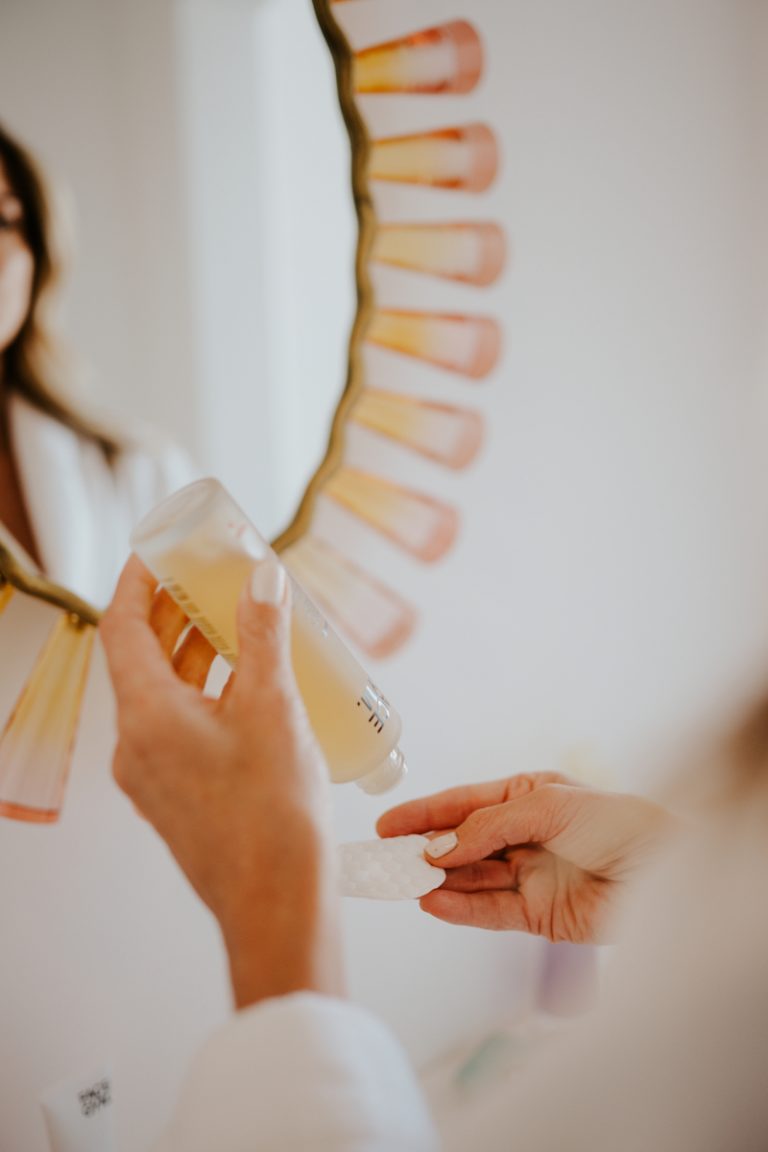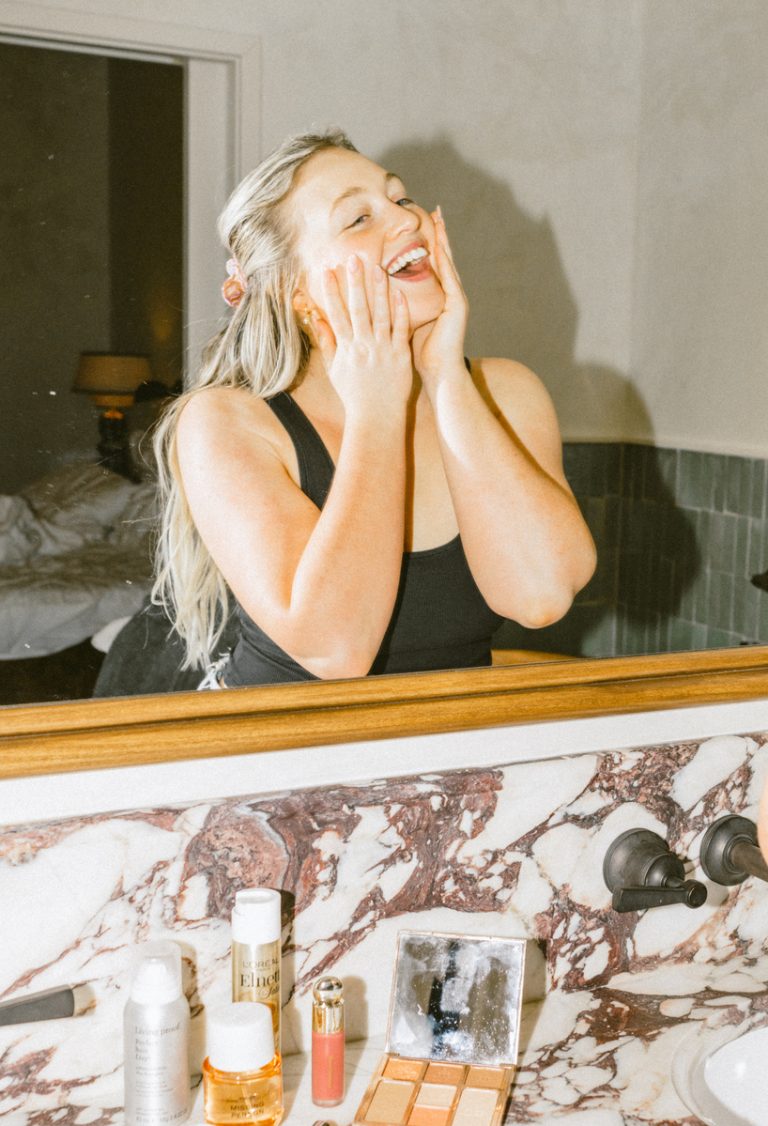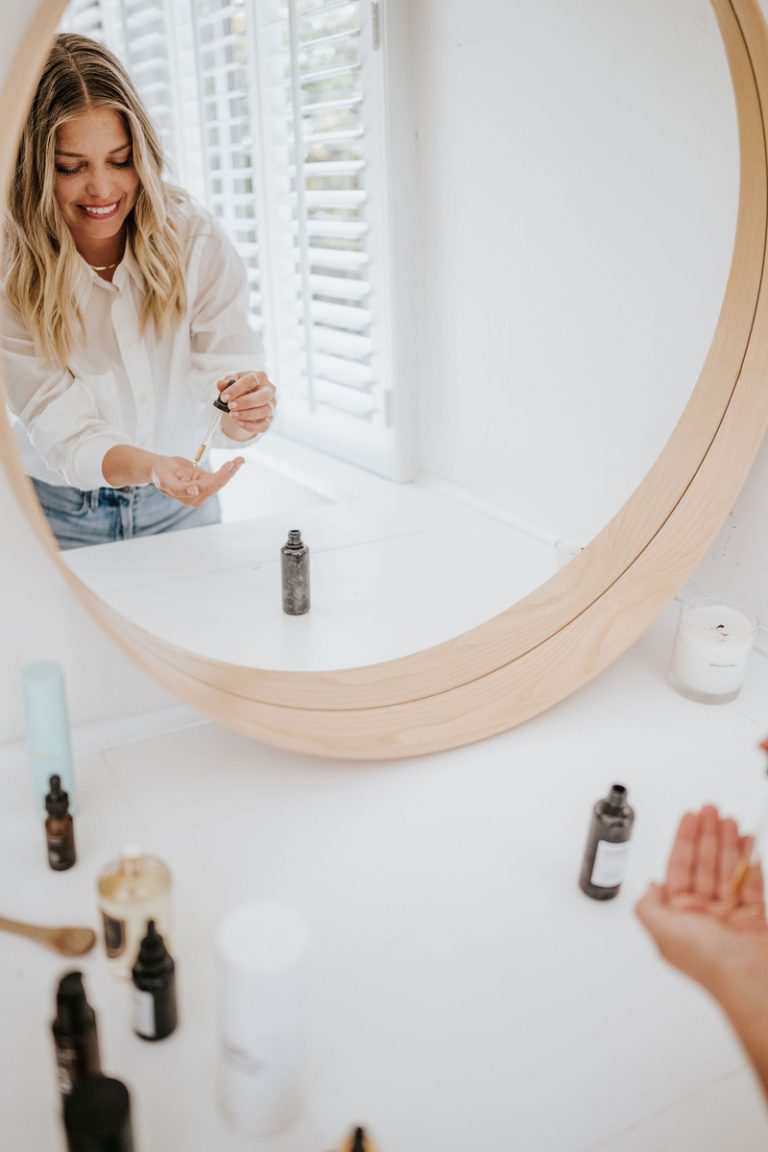
What if I told you there was a magical skincare potion that could naturally infuse moisture and bounce into your skin, soften wrinkles, and give you a dewy glow—no visit to the derm required? If you’re like me, you’d sign right up. That’s exactly why I’ve been on the hyaluronic acid train since I first read it about it a few years ago.
Since then, HA has become one of the buzziest skincare ingredients to hit the market since retinol. I’ve seen it popping up in everything from cleaners to oils to masks to oral beauty supplements. All these different formulations got me wondering whether all hyaluronic acid treatments were alike, or if (as I hypothesized) certain ways of getting the good stuff were better than others. And so my research began. Turns out, my hunch was right.
Featured image of Babba Rivera by Belathée Photography.

Subscribe
Get the goods.
Gatherings, food, design, wellness, and more—it’s the newsletter you’ll actually want to read.
Thanks for Signing Up!
Oops!
Looks like you’re already signed up or your email address is invalid.
Oops!
Looks like you unsubscribed before click here to resubscribe.
The Right and the Wrong Way To Use Hyaluronic Acid
How, when, and in what formulation… these things really do matter when it comes to getting your daily dose of HA. So, I connected with the team at Olay to set the story straight. (When it comes to what’s right and what’s wrong, think minimum effort, max results.) Scroll on for the secrets to your most beautiful, moisturized skin…
What is hyaluronic acid?
First, a quick lesson on what makes hyaluronic acid the wonder ingredient that it is. HA acts as a “humectant.” This means that it works like a sponge to help the skin retain water and plump it up. We actually have natural levels of hyaluronic acid in our skin, but as we age, they slowly deplete. This leads to wrinkles and a loss of bounce in the skin.
HA has the incredible capacity to attract and hold onto 1000x its weight in moisture. And here lies the key. Hyaluronic acid should be used in a moisturizer in order for it to work. When you add moisture to the skin, you’re giving the HA added water to absorb and hold onto, rather than pulling moisture out of dry skin.
Instead, HA brings moisture to the surface of the skin and holds it there, keeping skin continually moisturized throughout the day. To test this in action, I’ve been using Olay Regenerist Micro-Sculpting Cream for several weeks, and there’s no doubt that my skin is visibly dewier and smoother, with increased elasticity. And it stays that way all day without ever getting greasy.
Common Hyaluronic Acid Mistakes
These are a few of the most common mistakes made when incorporating hyaluronic acid into a skincare routine—and how to fix them so this super ingredient can do its job right.
Mistake 1: Using Hyaluronic Acid Without Moisturizer
Since HA can hold a lot of water (up to 1,000 times its weight!), just think about it: it needs moisture present in order to work. If the skin is already dry and HA is applied in a formula that doesn’t add moisture (think cleanser, toner, or light serum), it will pull moisture from wherever it can, like from deep within your skin, where it can then evaporate into the air if not sealed properly.
On the other hand, when HA is formulated within a deeply hydrating moisturizer, that emollient will penetrate and lock moisture into the skin, which is, of course, the goal.
Mistake 2: Not Using Hyaluronic Acid as the Final Step in Skincare
With all the fancy HA formulations on the market now (serums, pills, masks, and so much more), it can be tempting to adopt a “more the merrier” mentality. However, some research has shown that overuse of hyaluronic acid can result in redness and inflammation. The takeaway here: choose the one step where you’ll get the biggest bang for your buck. Since we’ve established that HA needs a moisture-packed formula for optimal effectiveness, locking it in (within a rich, well-formulated moisturizer) as the final step in your AM and PM skincare routine will leave you with hours of smooth, bouncy skin.
Mistake 3: Applying Hyaluronic Acid To Dry Skin
When HA is applied to dry skin in dry conditions, it will naturally pull moisture from wherever it can. So, if there’s low humidity in the air, it draws moisture from the deeper layers of skin and brings it to the surface, where it then evaporates and leaves skin drier than it was in the first place.
But when you start your HA skincare routine with a damp face, it has a reserve of moisture to pull from, plain and simple. Understanding this has been a game-changer that’s resulted in my healthiest, most moisturized skin ever.
So, prepare yourself for my new favorite new skincare hack. Each morning and evening, I mist my face with water, then apply Olay Regenerist Micro-Sculpting Cream, then mist again.
When hyaluronic acid comes into contact with water, my skin will end up hydrated and healthy. In the morning, I have a smooth canvas for my makeup—none of that “settling into fine lines” thing happening around my eyes these days.
Olay Regenerist Micro-Sculpting Cream Moisturizer
Olay Regenerist Micro-Sculpting Cream contains ultra-high concentrations of HA, smoothing out fine lines and transforming skin upon first use. It’s also infused with Vitamin B3 for skin cell turnover, plus Amino-Peptides and Antioxidants for ultimate health and hydration. I’ve been using it as the final step in my morning and night skincare routine for the past couple of months, and it’s become a non-negotiable in my lineup. After all, hydrated skin is happy skin!
This post was originally published on September 3, 2020, and has since been updated.




